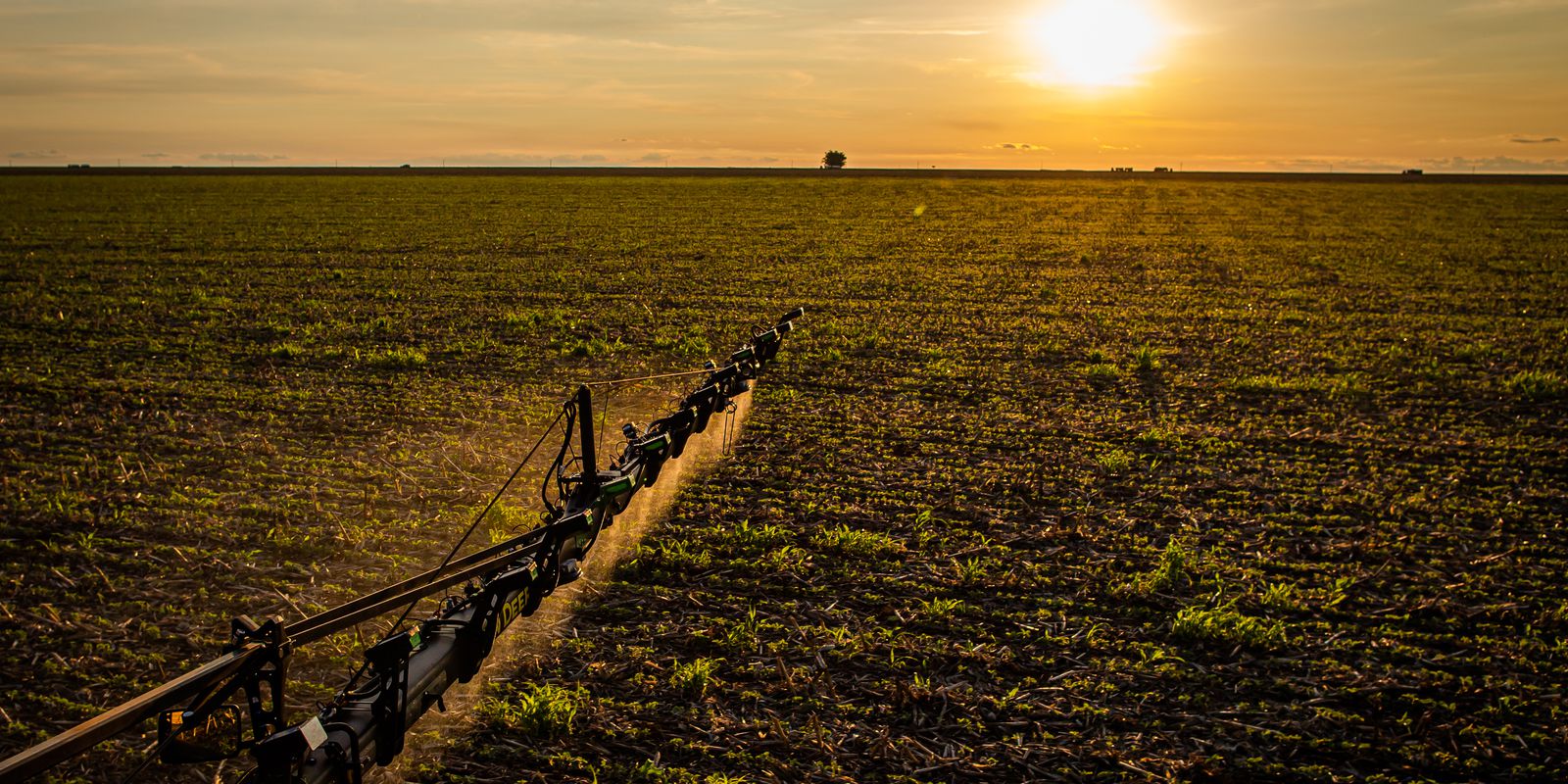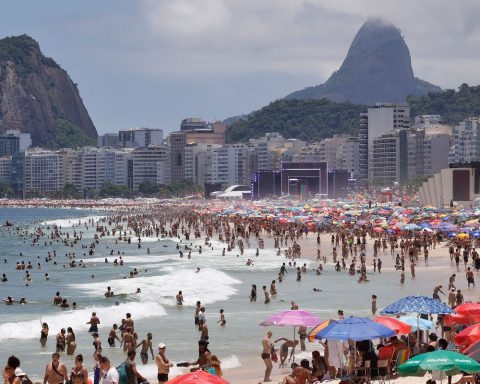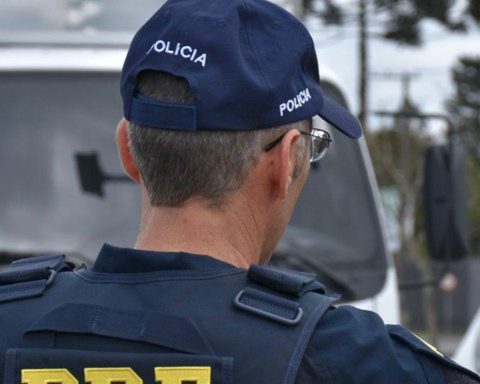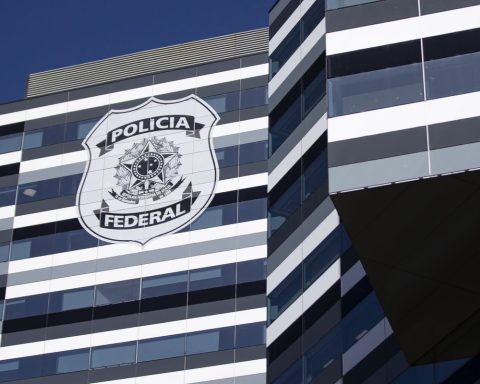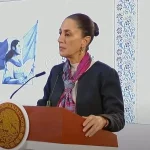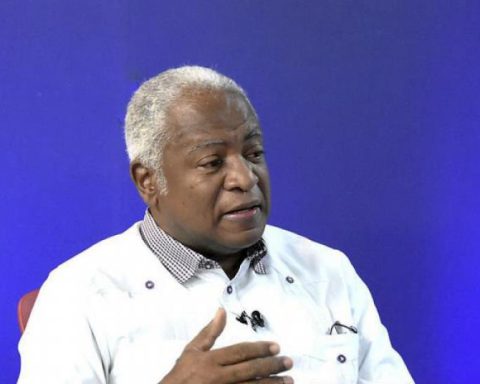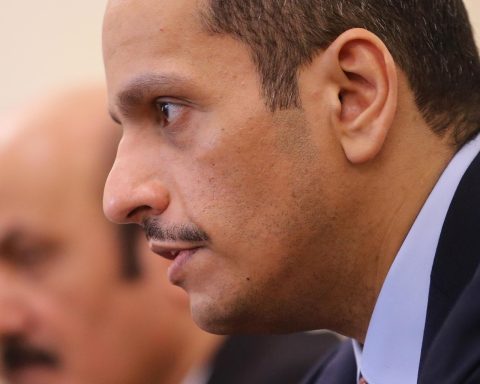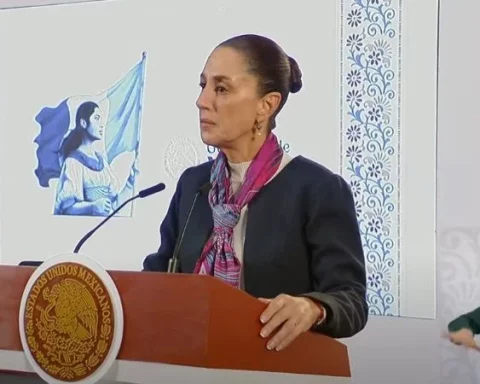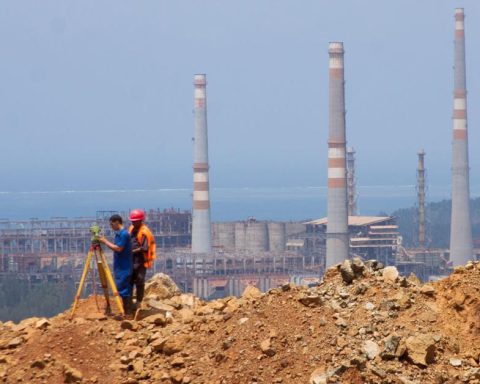Researchers from Embrapa Solos and Embrapa Agrobiologia are studying with government representatives the technical feasibility of building a fertilizer factory in Macaé, in the north of Rio de Janeiro. The city of Macaé, in partnership with the government of Rio de Janeiro and with the support of the Special Secretariat for Federative Affairs of the Presidency of the Republic, prepared a project that is in the public call for contracting consultancy phase.
“In three months, the technical and socio-environmental feasibility study should be ready,” he said, in an interview with Brasi Agencyl, the advisor to the Special Secretariat for Federative Affairs of the Presidency of the Republic, José Carlos Polidoro. The expectation is that by the end of the year, the project plan will be approved, so that work can begin next year.
The announcement was made during the passage of the Embrapa FertBrasil Caravan through Campos dos Goytacazes, in the region, on the last 22nd.
Polidoro pointed out that the National Fertilizer Plan, created in March last year, is one of the priorities of President Luiz Inácio Lula da Silva’s government. “One of the main goals is to reduce external dependence, because we import 85% of fertilizers. And Brazil does not do agriculture at any level without fertilizers.”
According to Polidoro, who is one of the founders of the FertBrasil Caravan and a researcher at the Brazilian Agricultural Research Corporation (Embrapa), Brazil needs to quadruple fertilizer production over the next 25 years.
He pointed out that the plant to be built in Macaé will contribute with up to a 10% reduction in external dependence on nitrogen, as the municipality is the largest producer of natural gas in the country, accounting for 60% of national production. Natural gas is the main raw material for nitrogenous fertilizers.
The advisor informed that a nitrogenous fertilizer plant requires investment between US$ 2 billion and US$ 3 billion and generates 5 thousand direct and indirect jobs in the construction phase. When in operation, it generates between 500 and 600 jobs that require high training and offer good wages. “It is an industry that has a long life. Having gas, it will produce fertilizers there for more than 50 years.”
Infrastructure
The mayor of Macaé, Welberth Rezende, told the Brazil Agency that the construction of fertilizer factories is a strategic solution for the country and for the development of national agriculture. For Rezende, Macaé meets all the necessary conditions for the installation of a similar factory.
In addition to the production of natural gas, the municipality has an industrial organization, due to oil and gas in the region, in addition to qualified labor. The city also has advantages in terms of logistics, as it is located close to major highways in the country, has a project to build a port, in addition to the local airport with daily flights to Rio de Janeiro and São Paulo.
“In addition to having priority factors such as logistics, skilled labor, natural gas, which is an important raw material for the manufacture of fertilizers, it still has a secondary infrastructure, with regard to health, education, treated sewage, respect for the environment that are also important for decision-making.”
According to the mayor, Macaé intends to host one of the factories foreseen in the National Fertilizer Plan. It will be the first plant of its kind in the state of Rio de Janeiro, for which the fertilizer area is one of the priorities of the current government of Rio de Janeiro.
Petrobras
José Carlos Polidoro explained that Petrobras, in 2016, stopped the production of two fertilizer plants in the Northeast Region. In 2018, it leased the plants to a private company, whose production was restarted this year, and they contribute with more than 15% of the national production.
In Mato Grosso do Sul, Petrobras is studying the best way to complete the construction of a new fertilizer factory, which already has 83% of the work completed. It will be another plant in production in Brazil. “Decisions are being taken within the framework of the new government.”
Located in Paraná, another factory is “hibernated”, that is, with production paralyzed. According to Polidoro, this unit and the factory under construction in Mato Grosso do Sul were in the process of being sold, which was canceled by Petrobras. “Now, we are reviewing how Petrobras will restart production in Paraná and finish the work in Mato Grosso do Sul.”
The business model is being studied by Petrobras and the Ministry of Mines and Energy.
According to the advisor, in the case of nitrogen, Brazil would go from importing 92% to around 60% to 65%, which means a drop in external dependence by one third.
“It takes Brazil out of the risk of running out of fertilizer in the world and in Brazil. Producing 30% to 40% already provides security to get through these international sighs and bumps”. Regarding potassium, Brazil imports 96% of what it consumes. “It’s even more critical.”
According to Polidoro, potassium is one of the most used fertilizers in agriculture and the factory of the private company Mosaic Fertilizantes, in Sergipe, intends to expand production until 2030, which will provide a small relief in dependence. There are also projects in Amazonas, which are still undergoing environmental and social feasibility studies, due to indigenous issues.
In the case of phosphorus, the situation is more relaxed. Brazil imports around 70% and could drop to less than 50% with investments, due to the existence of a lot of phosphorus in the country. Projects related to phosphorus also have social issues, because it is a mining activity, which causes an impact.
“Everything has to be done very carefully. Therefore, the National Fertilizer Plan was created. The National Council of Fertilizers and Plant Nutrition (Confert) was also created, whose function is to order and create a long and strong governance for sustainable economic development. With the strengthening and improvement of the national plan, the perspective is to make Brazil safe for agricultural production with regard to these inputs.”
